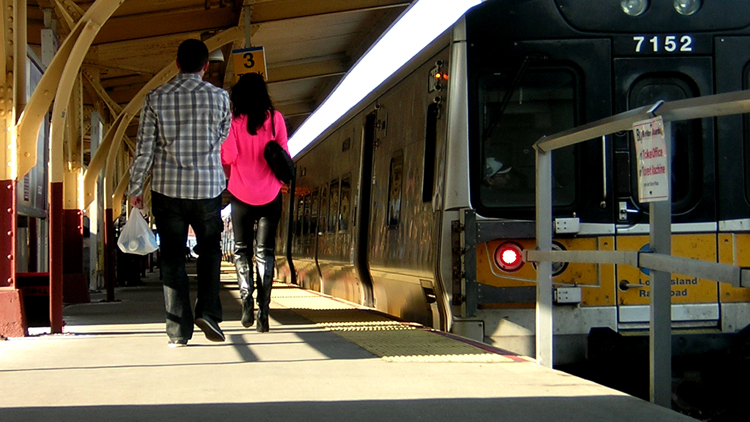Enough with the talk about congestion pricing! The MTA doesn’t have a revenue problem, it has a spending problem.
This was the case when the state legislature imposed a brutal MTA tax in 2009 that unfairly placed burdensome payroll taxes on businesses, schools and not-for-profits throughout the metropolitan area to fund the New York City transit system.
The law firm with which I am presently associated, Campolo, Middleton and McCormick, brought the lawsuit (funded by businessman William Schoolman) which held that the tax was unconstitutional. Though it was reversed at the appellate level, for what we maintain were political reasons, the attention brought to the issue helped precipitate new state legislation which removed the tax for small businesses previously affected.
Unfortunately, at no point during the deliberation of that tax plan was serious consideration given to ending the reckless spending patterns inherent in the MTA.
Then came the transit union contracts in 2014. The unions cleverly threatened a strike smack in the middle of a gubernatorial campaign. Elected officials were so anxious to get this headache off their plate that they basically capitulated to the unions’ every demand. In fact, the Railroad union asked for a 17 percent rate increase over 6 -1/2 years. They got exactly that over six years. It was truly disheartening to see that no serious givebacks were included in the package.
It should’ve surprised no one that those contracts were going to lead to major fare increases. Predictably, officials are calling for bi-annual 4 percent hikes in the coming years. It will now, remarkably, cost approximately $400 per month to travel from Ronkonkoma to Penn Station.
And now we see the chorus singing the same old song that more revenue is needed to fix our subways and crumbling bridges. So let’s tax motorists? It’s just one more nail into their coffins.
We submit today that no revenue enhancements should even be considered unless major reforms are implemented to the spending practices of this out of control entity. The press release of the governor and the mayor a few days ago cannot be taken seriously. It is restructuring in name only. It is an attempt to say we did something, when actually nothing of significance was accomplished.
This spending dilemma requires far more than consolidating a few agencies. It goes to the ridiculously archaic union work rules and outrageous overtime, salary and benefit packages that are simply unsustainable for our taxpayers.
The stories of abuse are legendary:
Double pay for a railroad employee simply working on a diesel and electric train on the same day.
Receiving overtime for washing one’s hands.
The prohibition of station agents from cleaning the floor or of janitors changing a lightbulb.
Subway workers, including managers and administrative personnel, now make an average of about $155,000 annually in salary, overtime and benefits.
The nearly 2,500 people who work in New York subway administration make, on average, $240,000 in salary, overtime and benefits. The average elsewhere is less than $115,000.
Disability abuse at the Long Island Rail Road, while impacting somewhat less than 97 percent of retirees at the peak of the scandal a decade ago, is still hovering at intolerable levels.
These ridiculous rules have resulted in making a mile’s worth of railroad construction in New York cost $2.6 billion,compared to $170 million per mile in Atlanta.
This agency is in a spending death spiral and no congestion plan, with tinkering around the edges, is going to prevent it’s ultimate collapse. It is simply unconscionable to consistently go back to weary taxpayers and commuters to dig further into their empty pockets.
There is only one realistic way to effectuate significant, sustainable restructuring: The threat of an MTA bankruptcy.
We could look to the bankruptcy petition filed by Carey Transportation in 1985. The union rules that the company had to deal with were so outlandish that drivers told management that they would transport people to LaGuardia Airport but not JFK, or vice verse. Fed up, the company said that they needed a change to these types of Byzantine rules or they would be forced to file Chapter 11. When their attempt at negotiations failed, they indeed initiated the bankruptcy proceeding. Ultimately, the judge changed the work rules and salary structure in management’s favor.
Bankruptcy is a desperate measure, but these trying times require desperate measures. The hope is that it would never get to that, but bankruptcy must be a realistic option to bring the players to the table.
When New York City was faced with fiscal collapse in the 1970s, it was a state monitored restructuring of their finances that kept the City from Armageddon. Bankruptcies, or the near equivalent thereof via control boards, have been implemented in Yonkers, as well as Erie County and other municipalities to restructure an unsustainable workforce. Cities such as San Bernardino and Detroit relied on bankruptcy to prevent a fiscal breakdown.
Meanwhile, a parallel track should be pursued for privatization. If the parties cannot restructure the expenditure packages, then authority should be granted to scrap the present system and start from scratch, with private entities participating in the running of the MTA. The parameters, such as how many trains would run, and how frequently, would still be set by the MTA, but the actual operations would be carried out by a for-profit entity incentivized to maximize efficiency.
It is our hope that it never comes to privatization or bankruptcy. But let’s make sure it’s understood that these are real options if the parties cannot negotiate rational restructuring of the archaic rules and excessive salary and benefit packages that are running the MTA into the ground.
I imagine there will be few, if any, brave souls who will come forward to endorse these needed reforms. We can’t force anyone to take the lead, but we can let the public know which officials agree to tax them further for the MTA’s needs without first requiring these necessary reforms. Not a dime more from our taxpayers and commuters until these type of cost controls are effectuated.
Steve Levy is a Executive Director of the Center for Cost Effective Governance. He served as Suffolk County Executive from 2004-2011, as well as a NYS Assemblyman and host of the “Steve Levy Radio Show.”
Bill Schoolman is past president of Classic Coach Transportation and Long Islanders for Tax Relief, which brought litigation against the MTA tax.



































